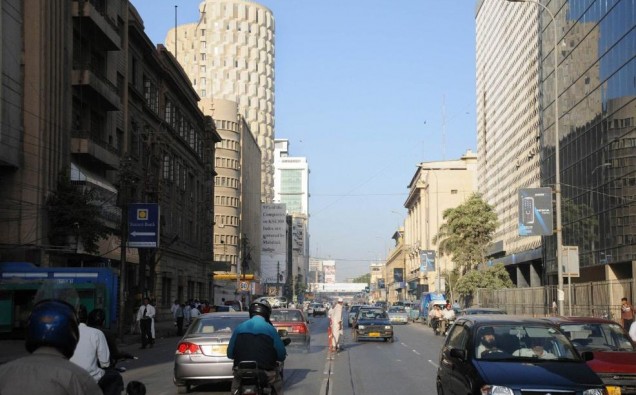
It was February 6, a shining day with cool breeze, when I reached the lawns of a local hotel in Karachi – tidal sea and Palm trees giving a Miami-like picturesque setting at a time when much of the northern Pakistan was in the grip of cold winter. A huge stage was set for performers and other literary and art events with more than two thousand chairs to seat visitors. Hundreds more would stand around attentive to a discussion going on with known literary figures of Pakistan.
The sight of the Sindhi and Karachi youth discussing literature and arts was such a refreshing experience, as the port city is slowly returning to its days of life and creativity after much bloodshed and unrest in the past few decades.
The hotel and its breezy environment transported me to some three decades back when my brother, Zafarul Azam’s wedding reception (Valima) was organized in the same lawn. He and his beautiful bride Tabinda were sitting on a decorated wedding stage encircled by friends, family and relatives. Many of my University and press friends, our family friends Ingrid and her two daughters Dagmar and Brigitte also travelled from Germany to attend this Pakistani wedding.
I was in the company of thousands of women and men, young, youthful, middle aged and children of every age. It was a festive day for all. No doubt it was a celebration, a literary festival Karachi Literary Festival (KLF), a stunningly diverse gathering, a jam-packed ardent musical program, comedy, Mushaira (poetry reciting), book launch and interesting debates. The huge bookstalls were frequented by people with books especially Urdu comics for children being a big attraction.
It was heartening to see the young men and women enthusiastically take part in such literary events. The young Sindhi women I met with were vibrant, passionate and energetic. They loved what they were doing. Most of them were running Non-Governmental Organizations, and many others were doing social work in the fields of education and women empowerment. The young men, mostly wrote and read literature in Urdu, Sindhi and English languages. They travelled to attend the KLF from many small cities, villages and towns from the interior Sindh to their dream city, Karachi.
My visit to Karachi took place after a decade-long absence. Things have changed a lot, the social fabric of the city has become more colorful, despite the fact that Karachi has gone through decades of unrest, terrorism attacks, targeted killings, car and mobile snatching…you name it, all kinds of crimes Karachiites have to endure.
The soaring population has reached a ’tipping point,”especially with the influx of the Pashtuns uprooted from their areas in the wake of cleanup operation against the Taliban in the tribal lands.
There are zillions of social, economic and political problems Edhi’s astounding social work, Chippa’s laudable community efforts and many more social organizations are working for the society. With popularity of the truck art on walls, a new phenomenon Deewar-e-Mehrbani (Wall of Kindness) has also emerged in the city of Karachi, after hitting Peshawar, Rawalpindi, Lahore and Sahiwal – Karachi is moving forward both economically and culturally.
Walls are normally a symbol of division but these walls are becoming an icon of kindness. Had welfare, social and political ideas along these lines flourished in the nineties, Karachi would been a different place, with unity amongst its communities and people that come from all provinces and parts of the country. The walls of kindness, originally an Iranian idea, means people leave their spare goods and clothes hanging on the walls for the needy, who may come and get what they require.
From my interaction with the people I also came to know that some political parties like the MQM are still working to resolve some of the problems facing common citizens. Other political parties may also have some welfare projects but I did not encounter people telling me of their services.
As a journalist, one thing that I felt was Karachi’s desire to become a city of peace and economic opportunity. It will take many literary festivals, walls of kindness, and a strong political will on part of all citizens, communities and parties to overcome the long decades of conflicts, and regain and then keep it as a city of hope, progress and glory.











